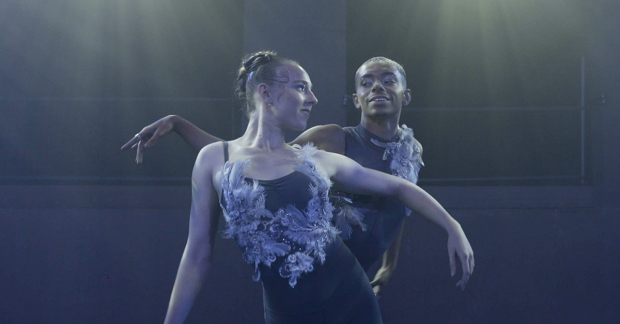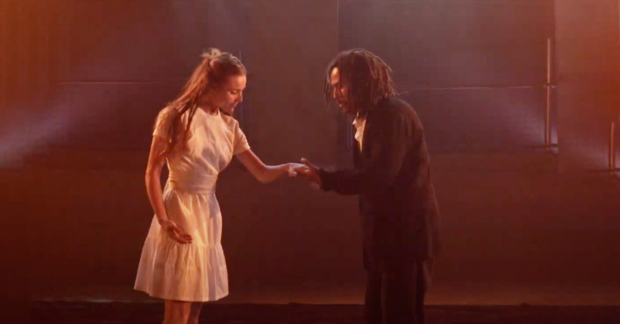Wait for Me musical creator Sam Cassidy: 'I fear not just for our industry but our country'

Now that's cleared up, let me tell you how I produced a full-blown musical during the Great Lockdown of 2020, which came about as a result of Covid-19.
If you are reading this in an attempt to follow in my footsteps, I implore you, take heed of my tale and do ABSOLUTELY NOTHING I did, if you can help it. First of all, I should be clear and tell you that I did not write Wait for Me during Lockdown, so to anyone who has attempted to write an entire show over the last six months, I applaud you for your efforts. All you have to do now is keep that overzealous attitude for the next three years. It takes time: that's just a fact that you'll have to come to terms with, with no promise of commercial or critical success. As Chaucer said, ‘the life so short, the craft so long to learn.' A sentence that I find grammatically jarring. See, no one's perfect.

Wait for Me has taken five years from the initial idea through to every rewrite thereafter. Years spent fine tuning the ebb and flow of a story that has no dialogue in it, only lyrics. The snap decision to write it as a novella so that my choreographer, Ainsely Ricketts, could get a sense of each scene by adhering to the mellifluous flow of the language rather than page after page of, "Enter stage left, lift arm, spin about a bit" etc.
Not to mention the months it took to create the lavish orchestrations, thanks entirely to the patience of Mark Benheim, my orchestrator, who spent hour upon hour listening to me screech out how I heard the trombones here and the flutes there. However, after years of work, I was ready to get a cast together, get into a rehearsal room, workshop the piece for all it's worth until we spilt out onto a West End stage to the rapturous applause of the crowd.
Of course it doesn't work like this. I have never known it to work like this. Since I left drama school ten years ago, the same big players have called the shots at the top and the same shows have offered stable stomping grounds for musical theatre performers. Les Mis, Phantom, bring back Miss Saigon, close Miss Saigon, time for a revamp of Jesus Christ Superstar,'Have you been seen for the We Will Rock You tour yet?' I think they're bringing back Jersey Boys, Wicked" etc.
Don't get me wrong, the draw of the West End's big hits has created a stable, thriving industry. One that many of us have fed off like the little sucker fish that ride along the side of whales. Bringing in £765 million and drawing in audiences of 15.5 million a year, It has always seemed to me like an unsinkable juggernaut. But now mother nature has thrown one hell of a harpoon at our industry. So how did this affect me and my little show? Honestly, it didn't. I was already struggling – I didn't have any money, a producer or a venue even before COVID struck. I just had a show and some incredibly talented artists willing to get stuck in. As it turned out, all my hurdles became my ladder.
There was a window. A small gap in the government's fatuous, ever-changing guidelines where people could co-exist in a bubble. Rather serendipitously, my cast had six people in it. The singers never needed to come within two metres of the dancers, my two leads were already a couple and the other two were happy to isolate throughout the rehearsal period. But it takes more than just a cast to create a show. I made some calls. I knew a guy who was general manager of an enormous, stunning underground arena that I can't mention by name for legal reasons. He had seen another of my shows some years before called MYTH and was so touched by the piece he offered me the arena space for my next show for next to nothing. I needed lights, a lot of lights: the arena is either pitch black or flooded with a sickly office-like glow.
I made another call: I had spent many years working as a male burlesque artist for a show called Forbidden Nights. I phoned the boss, Billy Blue Eyes and asked him what he was currently doing with his 100k lighting rig? Of course, due to COVID, nothing. I called my cinematographer, Nick Ross, my lighting designer, my sound engineer. By the end of the day, I had everyone on board and willing to work for nothing but the promise of a profit share if all went well. I was going to make Wait for Me a movie. A theatrical show, intimately captured for the screen.
So we locked ourselves in. The cast came in day after day and learnt to tell the story with their bodies. Then, tired and aching, they crawled home each evening, slept and skipped straight back the next day. There was no going to the pub for a drink after a particularly gruelling scene. There was no meeting friends at the weekend. There was literally nothing else but the work. We couldn't risk anyone getting infected.
It may sound bleak, but something magical was happening. Hidden in the giant underground cave with nothing but a speaker and a couple of coffee cups between them, what these wonderful artists were creating felt primal. Like our ancestors 20,000 years ago, sat around a fire telling stories about Gods and monsters, not because it was commercially viable, but because it was instinctual to do so.
Cameron Mackintosh couldn't do what I did. He shouldn't have to. I was a poor struggling artist, asking other poor struggling artists to make art for art's sake. We did it because we love it, because it's intrinsically linked with who we are. But calling in favours and relying on the passion of out-of-work professionals will not save our industry. Hence my warning, do not do as I have done. For though the show has proven to be a five-star critical success, it is bittersweet. I cannot help but feel like a vulture picking off the bones of a body not yet dead. I fear not just for our industry but our country. I fear the repercussions of the artistic apocalypse will resonate through the years. London is its own ecosystem, Our museums, our landmarks and of course our theatres bring people to us from all around the world.
When our country finds stability after Covid-19 I feel like our industry will never be the same again
People come for the culture, but they stay in our hotels, they eat in our restaurants, drink in our bars and shop in our high streets. They do not come to watch the bankers at work in Canary Wharf. Remove one vital organ from this cultural body and the whole thing will die. I fear our government is so obsessed with the unwashed hands of the nation it has ignored the fact that the beating heart has stopped. So what happens next? After World War Two, there was a huge shift in consciousness. Rock and roll was born, as was the term "teenager".
The world would never be the same again as the art scene thrived and exploded in new and exciting directions. When our country finds stability again after Covid-19 I feel like our industry will never be the same again. But maybe that's just what we needed. Maybe new, young producers who have been flirting with the public from every fringe hovel and hole will draw the crowds whilst Les Mis is still figuring out how to build a barricade between the cast and the audience.
Maybe more new writers with fresh concepts will sneak onto WhatsOnStage whilst the larger venues are shut. Maybe, finally, we will not simply play lip service to the idea that brand new tales written and performed by POC should be seen and heard. No more quick fix diversity, no more casting a black actress as Evita and calling it "progress". Instead we can actually weave unheard words of POC into our new multi-coloured tapestry, and see the profits of such work go back into the hands of the artists who wrote and spoke them. Maybe, just maybe. But until then, artists will keep creating in the silence. Alone at home, or in groups of six. Not because it's a viable job – but because it's vital for our community, economy and souls. All we have right now is space (two metres minimum to be precise) and time. So let's use it my friends. Like Jean Michel Basquiat said, "Art is how we decorate space, music is how we decorate time."
Wait for Me is available to watch online now.










